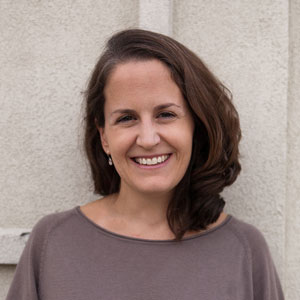
“Feedback is an opinion, grounded in observations and experiences, which allows us to know what impression we make on others. The information is revealing and potentially uncomfortable… But the upside of painful knowledge is so much greater than the downside of blissful ignorance.” Sheryl Sandberg, Lean In: Women, Work, and the Will to Lead
In graduate school, one of my favorite classes was Group Therapy. On the first day of class, our professor brought all of us,– roughly fifty students,– into a large room and had us sit in a circle. He then instructed us simply, and with a slightly amused expression: “Ok, find your groups.” We all stared at him for several seconds before realizing that this would be the extent of his guidance. We then turned our attention to one another and continued in paralyzed expectancy until one classmate stood up and remarked, “Who’s coming with me?” We began milling around the room and tentatively forming groups. Within a couple of minutes, we had a great deal of information,– about who took charge, who sought out new people as opposed to gravitating to those she or he already knew, who tended to follow or accommodate, who was most comfortable when staying with members of one gender.
This class went on to become one of the most stimulating and revealing parts of my graduate training. Every week, my group of six met for a full hour, again with no instruction as to how to spend the time. We videotaped our meetings and used the tapes to make detailed observations about group dynamics. While some of the other groups ended up with specific goals and with one person as a chosen leader, my group closely resembled a real therapy group in that we allowed the process to unfold in an open-ended way, and we established the safety to give and receive helpful relational feedback.
A couple of weeks into our experience, one female member began to emerge as a very dominant presence. She constantly referred to her “twenty years of clinical experience” as a therapist in private practice and indicated often that she was taking this course only to fulfill a newly added Maryland licensure requirement. I noticed that the rest of us were beginning subtly to align with each other through exchanged glances, and this woman seemed to have no idea that she was alienating herself. When she was given feedback in a gentle but direct way, she was horrified at the impression she’d made. She then had an opportunity to shift consciously into a more equal stance, becoming a connected and included member for the rest of our time together.
I recall another experience when I felt irritated at a group member because she sat quietly in what appeared to be glaring, resentful silence week after week. I finally risked an observation: “You seem to be waiting for someone to invite you to speak.” And to my surprise, she broke down crying and commented that she had grown up with a very verbal and attention-seeking older sister and struggled to feel that she had a voice. From then on, not only did I feel more compassion for this woman, but she also began to participate more actively, recognizing her part in what had become a self-fulfilling prophesy. As she risked having a voice in the group, she was encouraged and greatly enjoyed.
The most helpful feedback I received from the group was the observation that I appeared nervous when two other members were engaged in a heated conflict. And yes, I realized that I felt physically warm and uncomfortable, and I had a strong urge to bring quick resolution. This feedback challenged me to look more fully at my own and others’ experiences of anger and to accept and explore rather than to react with anxiety and attempts to fix; important growth for me, both personally and professionally.
We all have blind spots. Who acts as a safe and caring messenger of truth for you? And for whom have you delivered uncomfortable but potentially life-changing feedback? The relationships in which I share this degree of trust and honesty are the ones I value the most. If you want to develop this dynamic more fully in your life, I suggest choosing two or three people with whom you already sense a meaningful connection. Let them know that you are wanting to see yourself more clearly and you hope they’ll be part of an experiment. Invite some honest feedback: “What qualities do I have that draw you to me? When do you feel less connected to me? Do you ever hold back from telling me something because you expect that I’ll be defensive?” You may be surprised, and surprisingly blessed, by the answers.
About Lynn Davies
I am a Licensed Clinical Professional Counselor with a Master of Science in Pastoral Counseling from Loyola University in Maryland. I have been in private practice for over fourteen years and have experience working with adults and adolescents, addressing a variety of issues: anxiety, depression, relationship problems, past or current trauma, eating disorders, self-mutilation, bereavement, parenting concerns, boundaries, and self-care.
- Web |
- More Posts(22)

